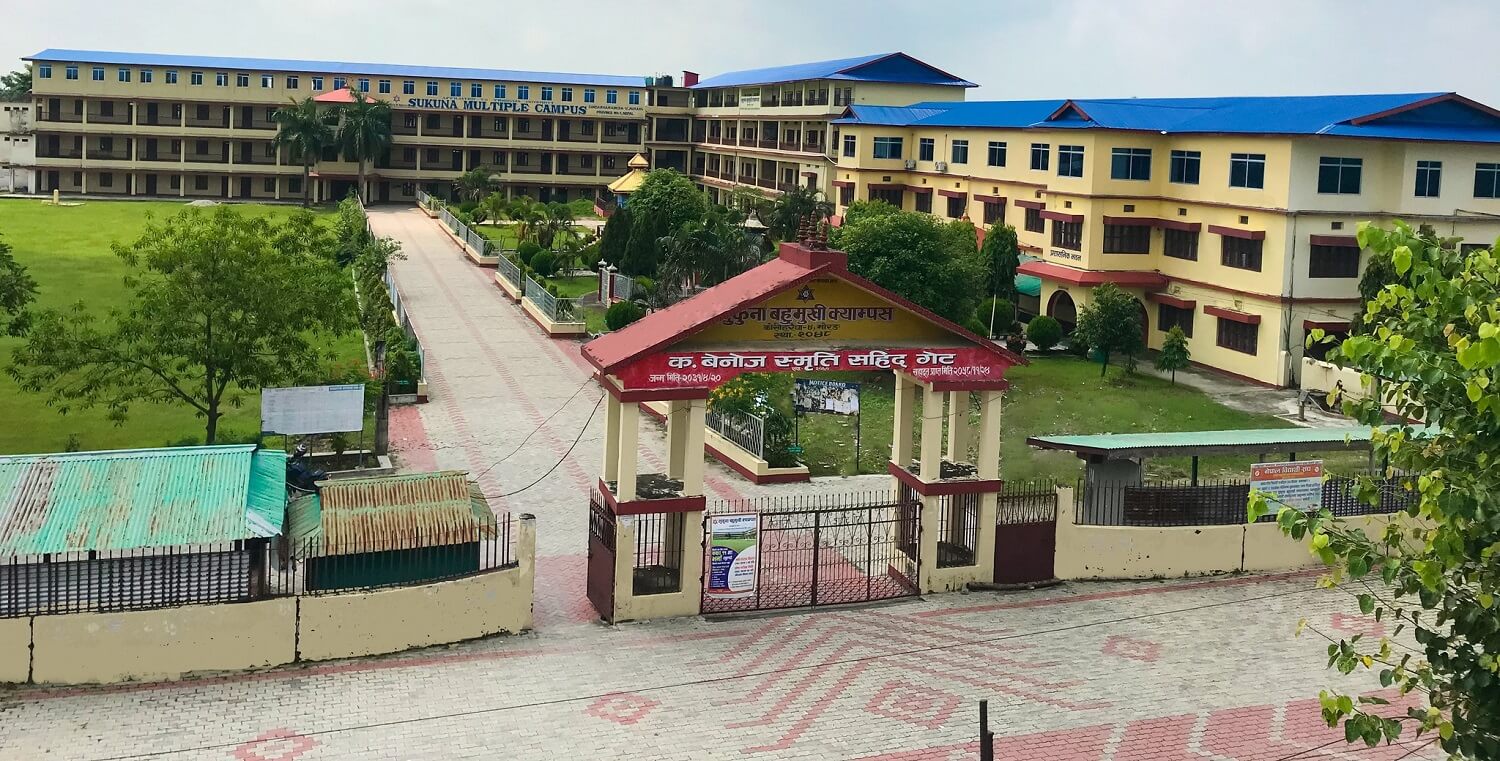Overview
BSc in Microbiology at Sukuna Multiple Campus, Indrapur, Morang
If you're a science student wondering how to turn your interest in biology into a real-world career, BSc in Microbiology might be the path you’ve been looking for.
At Sukuna Multiple Campus (SMC), Indrapur, Morang—affiliated with Tribhuvan University (TU)—the Bachelor of Science in Microbiology is a focused academic program that explores microorganisms, their impact on health, industry, and the environment.
This program is grounded in lab-based learning, scientific reasoning, and practical exposure, making it highly suitable for students passionate about scientific investigation and biological sciences.

Overview
The BSc Microbiology program at SMC is designed as a four-year, eight-semester undergraduate degree, strictly following the official course structure of Tribhuvan University’s Faculty of Science and Technology.
It combines classroom theory with laboratory practice, helping students understand microscopic life forms and their relevance in diverse fields such as medicine, agriculture, food safety, and environmental science.
Highlights
-
Affiliation: Tribhuvan University (TU)
-
Duration: 4 years (8 semesters)
-
Medium of Instruction: English
-
Schedule: Morning shift
-
Location: Sukuna Multiple Campus, Indrapur, Morang
-
Facilities: Modern laboratories, qualified faculty, library, and separate science building within a spacious campus setting
Curriculum Details
Here’s what you’ll study over the eight semesters:
-
Core Subjects:
-
General Microbiology
-
Bacteriology
-
Virology
-
Mycology
-
Microbial Genetics
-
Molecular Biology
-
Immunology
-
Medical Microbiology
-
Food Microbiology
-
Environmental Microbiology
-
Industrial Microbiology
-
Research Methodology and Biostatistics
-
Bioinformatics
-
-
Practical Work: Every semester includes intensive lab sessions directly related to core theoretical components.
-
Research Project: Final-year students complete a compulsory research project with lab-based analysis and field study.
Objectives
-
Build scientific and practical knowledge in microbial science.
-
Prepare students for technical roles in labs, industries, and public health institutions.
-
Foster research skills and critical analysis through hands-on experimentation.
-
Align learning outcomes with national and global microbial challenges.
Scope
Graduates of this program are eligible for:
-
Postgraduate studies in Microbiology, Molecular Biology, Biotechnology, or Public Health.
-
Competitive exams for government lab and health technician roles.
-
Research assistantships or trainee microbiologist positions in the public and private sectors.
Learning Outcomes
By the end of the program, students will be able to:
-
Identify, classify, and interpret microbial life and diseases.
-
Perform standard microbiological techniques and lab diagnostics.
-
Apply microbial knowledge in fields such as food safety, medical labs, environmental monitoring, and fermentation industries.
-
Develop and present scientific reports and research findings independently.
Skill Development Modules
Students develop key skills in:
-
Microscopy and staining techniques
-
Culture media preparation and microbial culturing
-
Aseptic handling and sterilization
-
Antibiotic sensitivity testing
-
Quality control in labs and production units
Teaching Methodology
The teaching approach at SMC combines:
-
Lecture-based learning using updated teaching aids
-
Lab demonstrations and supervised practicals
-
Research mentoring by experienced faculty
-
Internal evaluation through assignments, presentations, and project work
Admission Requirements
To apply for the BSc Microbiology program at SMC:
-
Students must have completed +2 Science (Biology group) or equivalent with a minimum C grade in each subject.
-
Must pass the entrance examination conducted by Tribhuvan University’s Institute of Science and Technology (IoST).
Career Opportunities
A degree in Microbiology opens up several career routes:
-
Clinical Laboratory Technician
-
Quality Control Analyst in pharmaceutical or food industries
-
Research Assistant in the health or biotech sectors
-
Environmental Microbiologist
-
Academic or Teaching roles (after PG)
-
Public health field worker
Scholarships and Financial Aid
Sukuna Multiple Campus provides:
-
Full scholarships for entrance and board exam toppers
-
Partial scholarships for deserving and economically challenged students
-
Annual recognition awards for academic excellence
Why Choose This Course?
For students in the eastern region of Nepal, particularly Morang, this program offers a credible and affordable path to enter the health and science sector. The location, experienced faculty, and practical learning facilities of Sukuna Multiple Campus create a strong academic environment. With the program being QAA-certified, it maintains the standards required for higher-level education and scientific research.
Conclusion
The BSc in Microbiology at Sukuna Multiple Campus is more than a degree—it’s a practical journey into the invisible world that shapes our environment and health. If you're ready to explore how microbes affect everything from disease to fermentation, this program provides the structure, guidance, and academic support to help you move forward confidently in your scientific career.

















